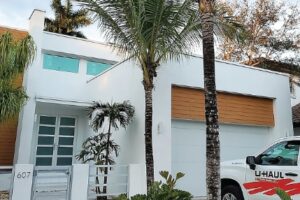Real estate investors often turn to construction loans to finance their investment properties. Perhaps you’re interested in developing a property or renovating an existing one, or even building from scratch. Whatever your plans may be, construction loans can provide you with the necessary funds to carry out your projects.
But getting a construction loan can be complex, especially if you’re new to the game. There are various factors to consider, such as lender requirements, interest rates, and loan-to-value ratios. In this guide, we’ll walk you through everything you need to know to get a construction loan for your investment property.
1. Understand the Types of Construction Loans
There are two main types of loans to look for when searching for a construction loan for your investment property in Washington:
Vertical Construction: Vertical construction is the method of building a building from the ground up, and refers to any construction that is built vertically, such as skyscrapers or high rises in a city. These projects are more often found in urban areas and gateway markets, rather than suburban or rural areas. This type of construction requires stronger materials to support the weight of the upper levels. It also requires more planning ahead of time as each level must be planned out before it can be constructed.
Getting a Construction Loan for Vertical Construction: Vertical construction loans typically require higher down payments and have stricter approval criteria than horizontal loans due to their longer project timeline and greater risk involved. Additionally, vertical construction usually requires more resources in terms of materials and labor to complete, resulting in higher interest rates or loan fees.
Horizontal Construction: Horizontal construction refers to any type of construction that is not vertical. This can include demolishing a building, obtaining entitlements and adding infrastructure to prepare a piece of land for vertical construction. This typically includes the construction of any fixed work, preparing utility connections for the site, including the initial site prep and grading that is involved with getting a site ready to build on, irrigation, drainage, water supply, flood control, etc.
Getting a Construction Loan for Horizontal Construction: If a borrower is getting a loan for horizontal construction, they are typically also getting a loan for vertical construction as well, from the same lender. Although, some lenders only offer vertical construction loans. Nevertheless, securing financing for a horizontal construction project is simpler than for a vertical project as there is typically less risk involved and fewer approvals needed. Keep in mind if the horizontal construction is already done, there will be more equity built into the deal, making it more attractive for lenders to offer to finance the vertical construction part of the project.
2. Determine Your Loan Amount
To determine the amount of money you need for the construction project, you need to add up all the costs that come with building/ constructing a property. These costs may involve permits, material costs, architectural plans, site preparation, labor costs, and finishing touches.
Once you have a rough idea of the total cost, you can then work on determining how much financing you will need. You may want to budget for more than you think you need in order to not run into a wall mid-project. Remember to keep in mind any required down payments, fees, and contingencies. It may be a good idea to make a “best case plan” and a “worst case plan”, to make sure that you have some buffer room if things don’t go according to schedule.
3. Shop for Lenders Offering Construction Loans
Compare loan programs from different lenders on this page. Inquire about their interest rates, terms and conditions, loan-to-value ratios, and any other requirements for approval. When researching potential lenders, don’t hesitate to ask questions about their construction loan process to ensure you find the best option for your needs.
If a particular lender stands out to you, then inquire about a loan with your project information to see what offers you are able to obtain. Keep in mind that the offer you receive may be different than the lender’s general terms, since a final offer is dependent on your project specs.
4. Gather the Required Documentation
To apply for a construction loan, you will typically have to provide documentation that demonstrates your ability to repay the loan. These documents may include your financial statements, tax returns, bank statements, and credit reports.
Additionally, you may need to provide detailed plans and specifications for the construction project, including the property location/ address, building plans, and estimated costs. Many lenders also want to see what your previous construction experience has been, or if you have a partner on title with construction experience (where they have been on the property title).
5. Get Approval for Your Construction Loan
Based on your documentation, the lender will determine if you meet their requirements and approve your construction loan application. The approval process could take several weeks to a few months. Once your loan is approved, you can then begin building or renovating your investment property using the funds provided by the lender.
Getting a construction loan for an investment property requires a good understanding of the types of loans available, the amount of money you need, and the documentation required to apply for the loan. Engage with lenders who offer construction loans and compare available loan types, interest rates, and terms of repayment. Don’t forget to have a clear idea of the costs involved, always stay within your financing limits, and keep your documentation up to date throughout the process. With these steps in mind, you can be confident in your ability to obtain the financing you need to complete your investment property construction project.








